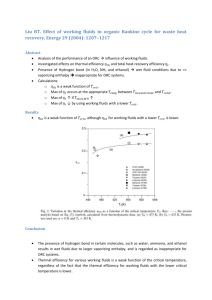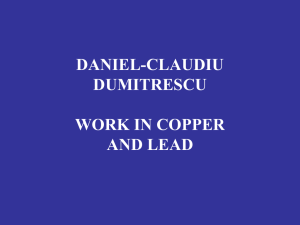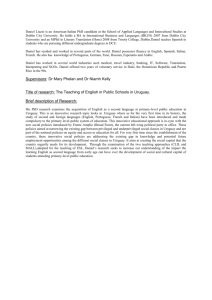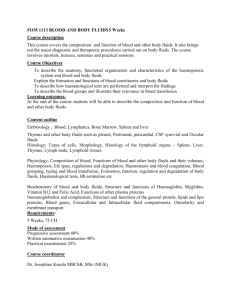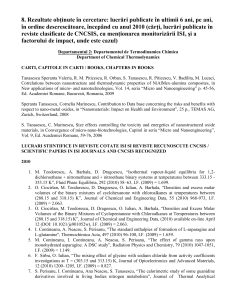ELGRA Medalist Dr.Daniel Beysens Ecole Supérieure de Physique
advertisement
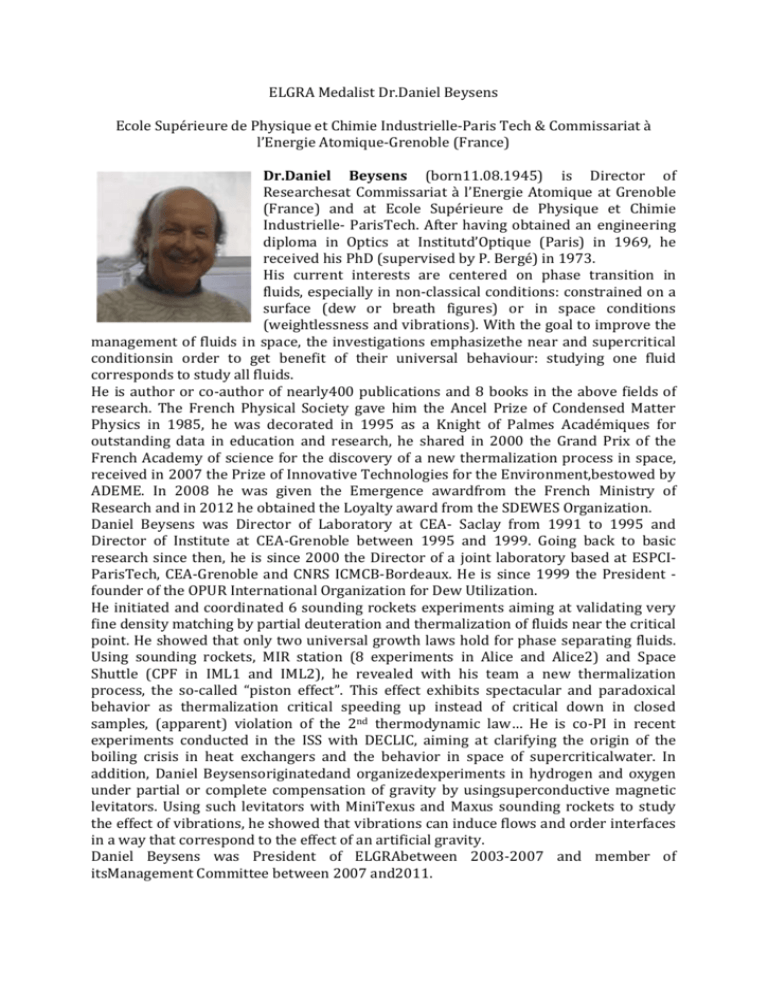
ELGRA Medalist Dr.Daniel Beysens Ecole Supérieure de Physique et Chimie Industrielle-Paris Tech & Commissariat à l’Energie Atomique-Grenoble (France) Dr.Daniel Beysens (born11.08.1945) is Director of Researchesat Commissariat à l’Energie Atomique at Grenoble (France) and at Ecole Supérieure de Physique et Chimie Industrielle- ParisTech. After having obtained an engineering diploma in Optics at Institutd’Optique (Paris) in 1969, he received his PhD (supervised by P. Bergé) in 1973. His current interests are centered on phase transition in fluids, especially in non-classical conditions: constrained on a surface (dew or breath figures) or in space conditions (weightlessness and vibrations). With the goal to improve the management of fluids in space, the investigations emphasizethe near and supercritical conditionsin order to get benefit of their universal behaviour: studying one fluid corresponds to study all fluids. He is author or co-author of nearly400 publications and 8 books in the above fields of research. The French Physical Society gave him the Ancel Prize of Condensed Matter Physics in 1985, he was decorated in 1995 as a Knight of Palmes Académiques for outstanding data in education and research, he shared in 2000 the Grand Prix of the French Academy of science for the discovery of a new thermalization process in space, received in 2007 the Prize of Innovative Technologies for the Environment,bestowed by ADEME. In 2008 he was given the Emergence awardfrom the French Ministry of Research and in 2012 he obtained the Loyalty award from the SDEWES Organization. Daniel Beysens was Director of Laboratory at CEA- Saclay from 1991 to 1995 and Director of Institute at CEA-Grenoble between 1995 and 1999. Going back to basic research since then, he is since 2000 the Director of a joint laboratory based at ESPCIParisTech, CEA-Grenoble and CNRS ICMCB-Bordeaux. He is since 1999 the President founder of the OPUR International Organization for Dew Utilization. He initiated and coordinated 6 sounding rockets experiments aiming at validating very fine density matching by partial deuteration and thermalization of fluids near the critical point. He showed that only two universal growth laws hold for phase separating fluids. Using sounding rockets, MIR station (8 experiments in Alice and Alice2) and Space Shuttle (CPF in IML1 and IML2), he revealed with his team a new thermalization process, the so-called “piston effect”. This effect exhibits spectacular and paradoxical behavior as thermalization critical speeding up instead of critical down in closed samples, (apparent) violation of the 2nd thermodynamic law… He is co-PI in recent experiments conducted in the ISS with DECLIC, aiming at clarifying the origin of the boiling crisis in heat exchangers and the behavior in space of supercriticalwater. In addition, Daniel Beysensoriginatedand organizedexperiments in hydrogen and oxygen under partial or complete compensation of gravity by usingsuperconductive magnetic levitators. Using such levitators with MiniTexus and Maxus sounding rockets to study the effect of vibrations, he showed that vibrations can induce flows and order interfaces in a way that correspond to the effect of an artificial gravity. Daniel Beysens was President of ELGRAbetween 2003-2007 and member of itsManagement Committee between 2007 and2011.



